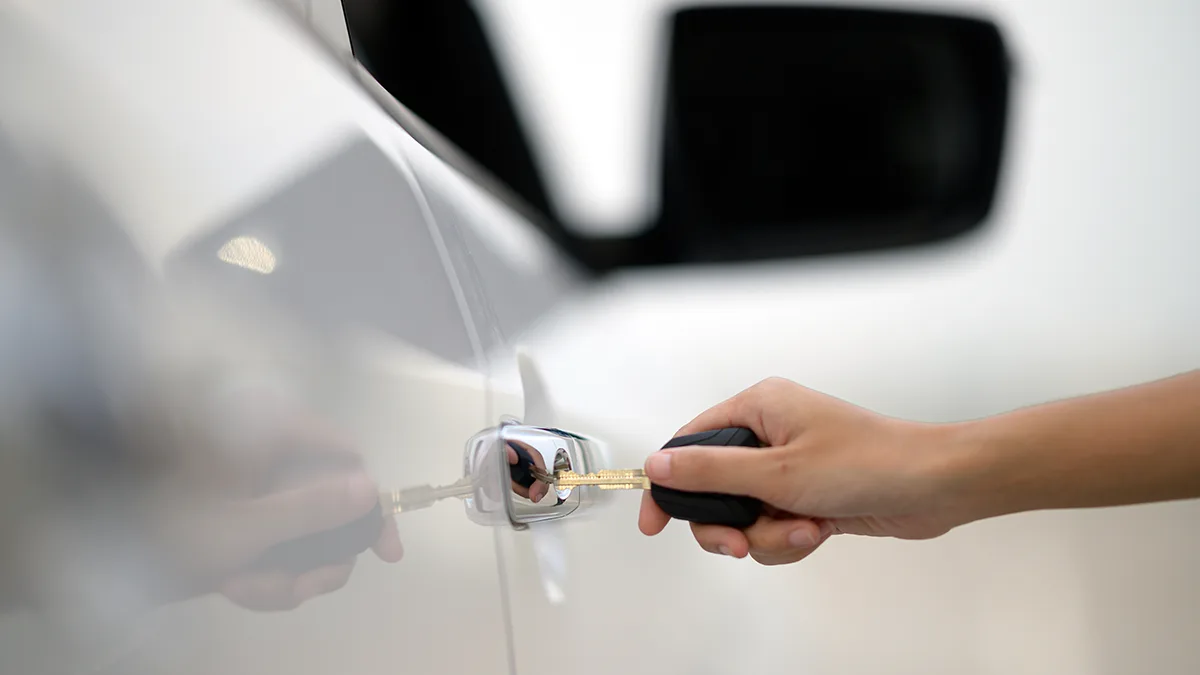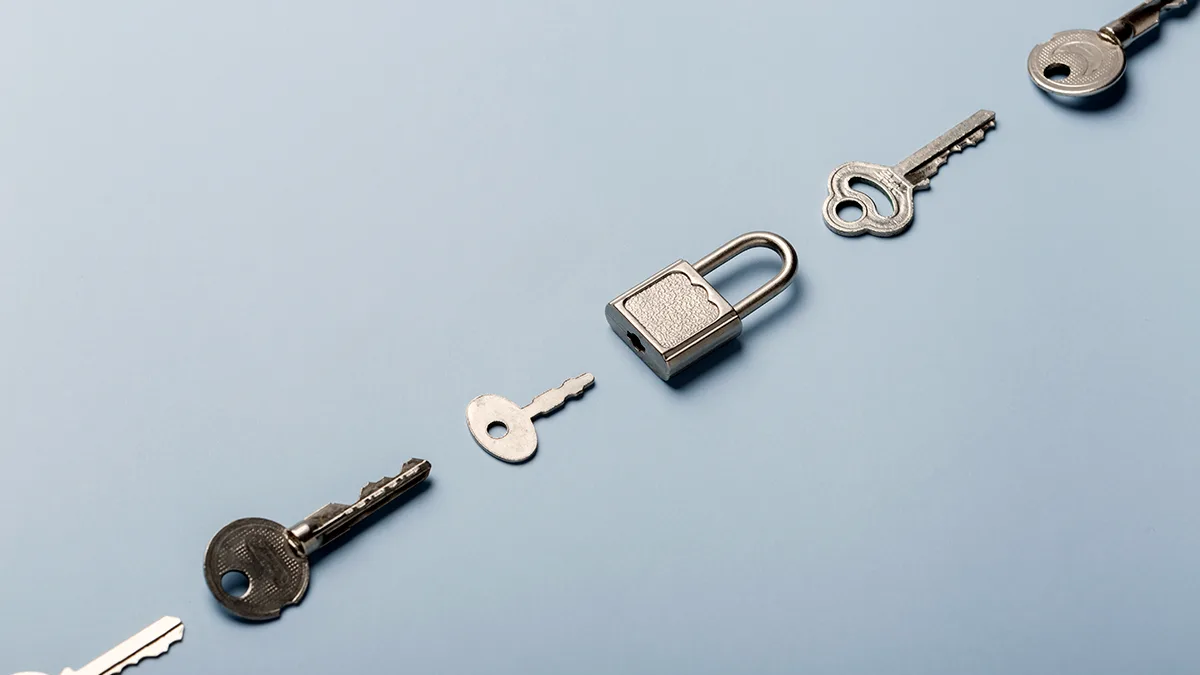The Hidden Costs of DIY Lock Repairs and How to Avoid Them. In a bustling city…
Common Lock Problems and How a Locksmith Fixes Them
Common Lock Problems and How a Locksmith Fixes Them. Locks are an essential part of our daily lives, providing security and peace of mind in both residential and commercial settings.
However, like any mechanical device, locks can encounter issues over time.
In this article, we will explore some common lock problems that residents and businesses in London may face and how a professional locksmith can resolve these issues effectively.
As we look ahead to 2025, understanding these problems and solutions can help you maintain the security of your property.
Understanding Common Lock Problems
Locks can fail for a variety of reasons, and being aware of these common issues can help you take proactive measures.
Here are some of the most prevalent lock problems that a locksmith in London frequently encounters:
1. Key Sticking or Jamming
One of the most common issues is when a key gets stuck or jams in the lock.
This can occur due to dirt or debris inside the lock, wear and tear of the lock mechanism, or even a misaligned strike plate.
How a Locksmith Fixes It:
A professional locksmith will first assess the lock and the key to determine the cause of the sticking.
They may use a lubricant to free the key or clean the lock mechanism. If the lock is damaged, they may recommend a repair or replacement.
2. Broken or Bent Keys
Keys can easily become bent or broken, especially if they are made of softer metals.
A broken key can leave you locked out of your home or business, causing frustration and inconvenience.
How a Locksmith Fixes It:
Locksmiths have the tools to extract a broken key from the lock without causing further damage.
They can then create a new key based on the lock’s specifications or, if necessary, rekey the lock entirely.
3. Lock Not Turning
If you find that your lock is not turning, it could be due to several factors, including rust, dirt accumulation, or internal malfunction.
This problem can occur in both traditional and electronic locks.
How a Locksmith Fixes It:
A locksmith will inspect the lock for signs of corrosion or debris.
They may disassemble the lock to clean and lubricate the internal components.
If the lock is beyond repair, they can recommend a suitable replacement.
4. Misaligned Locks
Over time, doors can shift or settle, causing locks to become misaligned.
This misalignment can prevent the lock from engaging properly, making it difficult to secure your property.
How a Locksmith Fixes It:
A skilled locksmith will assess the door and lock alignment.
They may adjust the hinges or the strike plate to ensure proper alignment, allowing the lock to function smoothly again.
5. Lock Cylinder Issues
The lock cylinder is the part of the lock where you insert your key.
If you experience difficulty inserting or turning the key, the cylinder may be damaged or worn out.
How a Locksmith Fixes It:
Locksmiths can replace the lock cylinder if it is beyond repair.
They will ensure that the new cylinder matches your existing key or provide a new key for the replacement cylinder.
6. Electronic Lock Malfunctions
As technology advances, electronic locks are becoming more common in homes and businesses.
However, they can also malfunction due to battery failure, software glitches, or wiring issues.
How a Locksmith Fixes It:
A locksmith experienced in electronic locks will diagnose the issue, whether it’s a simple battery replacement or a more complex software reset.
They can also recommend maintenance practices to prevent future problems.
7. Lost or Stolen Keys
Losing your keys or having them stolen can pose a significant security risk.
It’s crucial to address this issue promptly to prevent unauthorised access to your property.
How a Locksmith Fixes It:
In cases of lost keys, a locksmith can rekey your locks, rendering the old keys useless.
This process involves changing the internal components of the lock so that it works with a new key. In some cases, they may recommend a complete lock replacement for added security.
8. Frozen Locks
In colder climates, locks can freeze, making them difficult or impossible to operate.
This issue is particularly common in London during winter months.
How a Locksmith Fixes It:
A locksmith will use specialised techniques to thaw the frozen lock without causing damage.
They may apply heat or a de-icing solution to restore functionality.
The Role of a Locksmith in London
Locksmiths are trained professionals who specialise in the installation, repair, and maintenance of locks and security systems.
In London, locksmiths are often available 24/7 to address emergency situations, such as lockouts or break-ins.
Their expertise extends beyond just fixing locks; they also provide valuable advice on improving your security measures.
Choosing a Reliable Locksmith
When selecting a locksmith in London, it is essential to choose a reputable and qualified professional.
Here are some tips to help you find a reliable locksmith:
- Check Credentials:
- Ensure the locksmith is licensed and insured.
- This protects you from potential damages during the repair process.
- Read Reviews:
- Look for online reviews and testimonials from previous customers to gauge the locksmith’s reliability and quality of service.
- Get Quotes:
- Before committing to a service, request quotes from multiple locksmiths.
- This will help you compare prices and services offered.
- Ask About Experience:
- Inquire about the locksmith’s experience with specific lock types, especially if you have electronic locks or high-security systems.
- Emergency Services: Ensure the locksmith
- offers emergency services, as lock issues can arise at any time.
Preventing Common Lock Problems
While locksmiths can effectively address lock issues, taking preventive measures can save you time and money in the long run.
Here are some tips to help you maintain your locks and prevent common problems:
- Regular Maintenance:
- Schedule regular maintenance checks for your locks, especially for high-usage areas.
- A locksmith can clean and lubricate the locks to ensure smooth operation.
- Use Quality Locks:
- Invest in high-quality locks that are designed to withstand wear and tear.
- This is especially important for exterior doors.
- Keep Keys in Good Condition:
- Avoid bending or forcing keys into locks.
- If you notice any signs of wear, consider replacing the key.
- Address Misalignments Promptly:
- If you notice that your door is misaligned, address the issue as soon as possible to prevent further damage to the lock.
- Be Mindful of Weather Conditions:
- In colder months, take precautions to prevent locks from freezing.
- Use de-icing spray if necessary and keep locks clean.
- Change Locks After a Move:
- If you’ve recently moved into a new home or business, consider changing the locks to ensure that only you have access.
Locks are vital components of our security systems, and understanding common lock problems can help you address issues before they escalate.
Whether you encounter a sticking key, a misaligned lock, or an electronic malfunction, a professional locksmith in London can provide the necessary expertise to resolve these problems efficiently.
As we approach 2025, staying informed about lock maintenance and choosing a reliable locksmith will ensure that your property remains secure and protected.
In a city as dynamic as London, having a trusted locksmith on hand can make all the difference in safeguarding your home or business.
Don’t wait for a lock problem to occur; take proactive steps to ensure your locks are in optimal condition.




Comments (0)